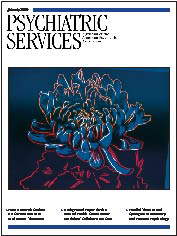Mental Health Care of Deaf People: A Culturally Affirmative Approach
The editors of this excellent and exceptional book weave a variety of interdisciplinary and culturally informed viewpoints. They delineate the complex cultural, political, medical, historical, and health care forces that affect service design. This is a must-read for anyone who is involved in programming services for deaf persons.
Sanjay Gulati's brilliant chapter explaining how language deprivation in early childhood can profoundly alter the way in which a human being develops should be required reading for anyone who will encounter deaf children, including pediatricians, audiologists, language therapists, and educators. The book details how to engage people who have habitually been marginalized. I plan to recommend it to all the professionals I know who work in the areas of deafness and mental health and to have medical students read the chapter on psychiatric care, which is an excellent developmental overview.
A remarkable feature of this book is the level of concrete details, including a CD that contains many of the forms and psychosocial rehabilitation tools the Westborough State Hospital uses in working with people who have limited language or conceptual capacities. Because these tools are visual, they can easily be used with a variety of persons who have linguistic barriers.
Attempting to explain to an unfamiliar audience the key constructs for developing services is very difficult, but Gulati does this beautifully. He rightly notes that despite the severe impact of language deprivation on human development, DSM has no specific category that captures these effects. Gulati not only discusses the impact of language deprivation from both an academic and a case example perspective but also tackles the issue of cochlear implantation. He addresses the myth that cochlear implants will enable deaf children to acquire a spoken language. He describes psychiatric assessment of deaf adults and children. He discusses psychosis and notes that one-third of deaf persons with schizophrenia and 50 percent of deaf persons with psychotic mood disorders report visual hallucinations and that many deaf persons with psychoses report auditory hallucinations.
Neil S. Glickman opens with an extremely important chapter on culturally affirmative treatment. People who are not deaf tend to understand accessibility in narrow terms, and Glickman expertly explains what is involved in culturally affirmative treatment. In my experience, if a hospital is able to obtain an interpreter for the doctor's rounds in addition to one hour of group therapy, this is considered to be culturally accessible treatment. But this is a far cry from what affirmative treatment involves. Glickman explains a very important construct so that it is comprehensible. Hospital and mental health clinic administrators would be well served by familiarizing themselves with these aspects of the book.
Other chapters address substance abuse treatment, residential care, and the management of sex offenders. The chapter on psychological testing is so broad that it offers little specific advice. For those of us in the deafness field, the chapters about the difficulties faced by therapists and supervisors will ring very true. In a whimsical chapter called "Does God have a Cochlear Implant?" the author expertly brings up all the colliding forces in deafness and mental health.
Dr. Haskins is with the Virginia Department of Mental Health, Mental Retardation, and Substance Abuse Services in Richmond.



